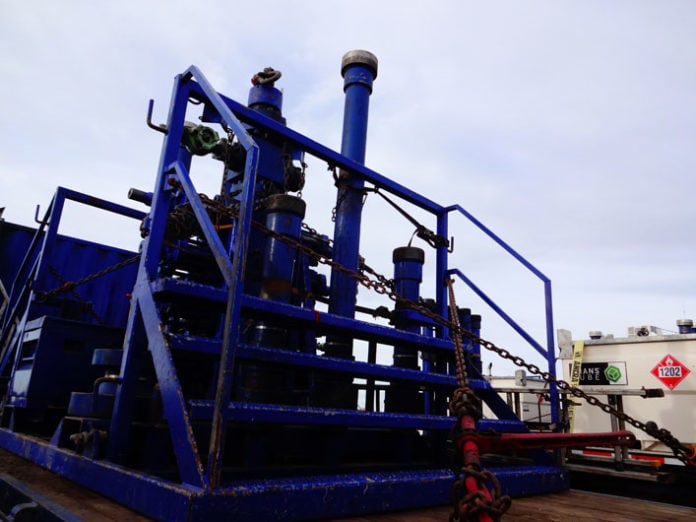If you are new to the oil and gas industry, working as a frac operator can be a good way to get yourself into the oilpatch.
The barrier for entry to start working as a frac operator is pretty low and when the industry is booming the salaries are usually pretty good as well.
If you are not familiar with hydraulic fracturing, it is a method of increasing production from the well by creating fracturing in the formation.
This is done by pumping a mixture of water, sand, and chemicals down the wellbore at high pressure.
This process requires a lot of equipment and this is where you come in.
Related: What is Hydraulic Fracturing? | Process, Equipment, and Chemicals
Frac Operator Duties
Driving Frac Equipment
You will be required to drive frac equipment to and from the location after the job is completed.
Rigging in and out Frac Equipment
Before frac operations can begin all the equipment needs to be rigged in and pressure tested.
This includes setting up all the iron, manifolds and preparing the wellhead.
Frac Equipment Maintenance
Fracturing operations usually go for 24 hours a day and may last a few weeks and that’s why companies put a lot of effort to ensure there are no equipment failures during the operation by doing preventative maintenance.
Because of the amount of equipment involved in hydraulic fracturing operations any failures and delays in operation can be very costly for both frac companies and the clients.
Related: What Do MWD Operators Do?
Operating Frac Equipment
Depending on your positions you might be operating frac pumps, blenders, or sand equipment.
Most frac companies will usually give you an opportunity to rotate between different pieces of equipment so that you can learn how all of them operate.
Following HSE Regulations
Safety is very important in the oilfield and companies do everything in their power to avoid any accidents.
Any medical emergency not only can delay a frac operation but might also have a negative effect on the company’s reputation and might affect their ability to get work from the clients.
Frac Operator Requirements
Typically to work as a frac operator you will need to have your high school diploma or GED.
However, having a college degree can be beneficial as well.
You also need to have a CDL (Commercial Driver’s License) driver’s license.
However, if the industry is booming and companies have trouble attracting people they may train you in-house.
It also helps if you have previous experience in the oilfield or anywhere else where you had to work with heavy machinery.
Related: What Frac Engineers Do and How To Become One?
Work Conditions
Similar to most other oil field jobs, you will likely work in rotational shifts.
Most often it is 15/6, 20/10, or 14/14.
For example, 15/6 means that you will work for 15 days straight and then will have 6 days off.
Each shift is usually 12 hours and you might be working either nights or days.
During your rotation, you will either stay in a camp or hotel which is provided by the company.
Food or food subsidy is also usually provided.
Some companies may even pay for your flight to the location but in most cases, you will have to drive to their shop and then drive from there with your other crew members.
The work can be physically demanding while rigging in and rigging out the equipment but during frac itself, you will likely have a lot of downtime.
Pad work where you frac more than one well on the same location is usually the easiest because there is only minimal movement of the equipment and iron between the wells.
Read next: Working In the Oilfield | Requirements, Entry Level Jobs and Work Conditions
